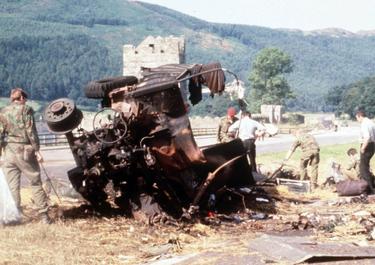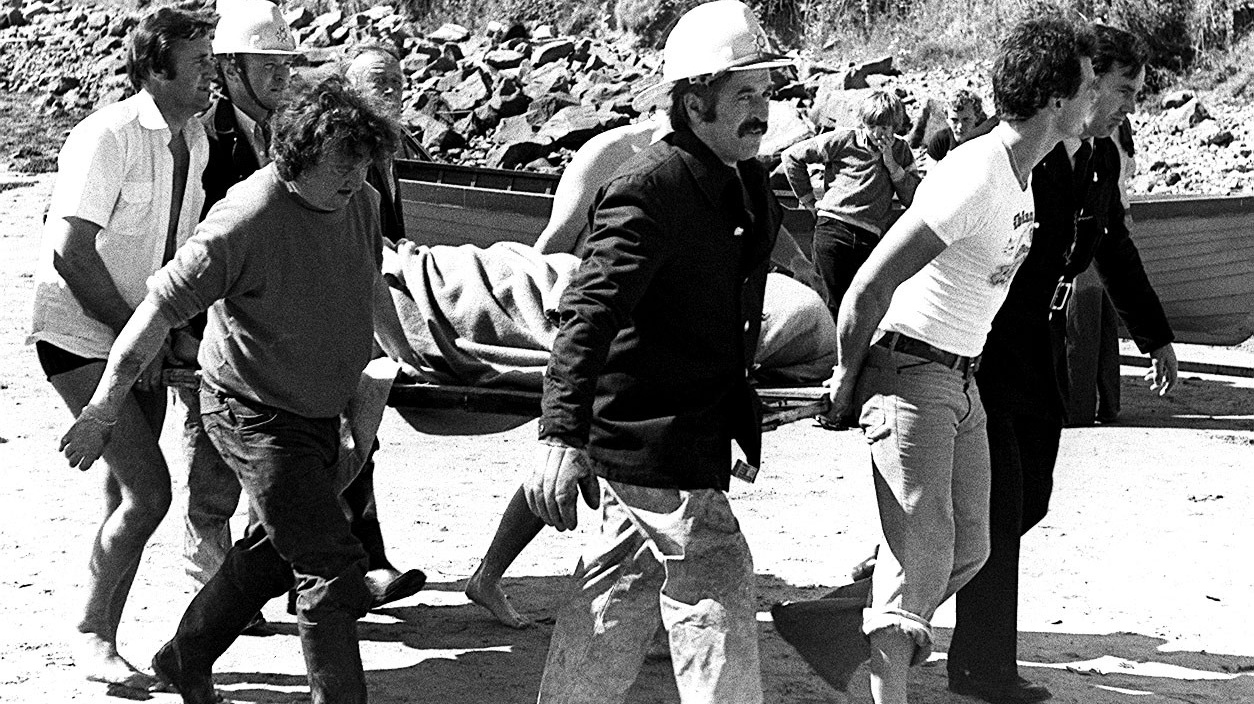Photo AI
Last Updated Sep 26, 2025
The Warrenpoint Ambush - Lord Mountbatten is killed Simplified Revision Notes for Leaving Cert History
Revision notes with simplified explanations to understand The Warrenpoint Ambush - Lord Mountbatten is killed quickly and effectively.
446+ students studying
The Warrenpoint Ambush - Lord Mountbatten is killed
Context Leading to the Ambush
- The Warrenpoint Ambush and the assassination of Lord Louis Mountbatten in 1979 occurred during a particularly violent period of the Troubles in Northern Ireland.
- The Troubles had escalated throughout the 1970s, with the Provisional Irish Republican Army (IRA) intensifying its campaign against British rule in Northern Ireland.
- The IRA's strategy included targeting both military and civilian figures to create maximum political impact and force the British government to negotiate a withdrawal from Northern Ireland.
- By 1979, the British Army had been stationed in Northern Ireland for a decade, following the deployment of troops in 1969 to address escalating sectarian violence.
- The conflict had claimed thousands of lives, and the IRA had become increasingly sophisticated in its operations, carrying out bombings, assassinations, and ambushes.
- The British government, under Prime Minister Margaret Thatcher, was committed to defeating the IRA militarily, rejecting any political compromise with the group. This hardline stance contributed to the heightened violence during this period.
- The ambush at Warrenpoint and the assassination of Lord Mountbatten on the same day marked a turning point in the conflict, highlighting the IRA's ability to strike high-profile targets and inflict significant casualties on British forces.
- These events shocked the British public and brought renewed attention to the conflict in Northern Ireland, leading to increased military and political efforts to address the situation.
The Warrenpoint Ambush
-
The Warrenpoint Ambush took place on 27 August 1979 and was one of the deadliest attacks on British forces during the Troubles.
-
The ambush occurred near the village of Warrenpoint, County Down, close to the Irish border. The Provisional IRA targeted a British Army convoy, resulting in the deaths of 18 soldiers, making it the deadliest attack on the British Army in Northern Ireland.

-
The IRA meticulously planned the attack. It involved the detonation of two large bombs hidden in hay bales along the narrow country road that the British convoy was travelling on.
-
The first bomb, which was remotely detonated as the convoy passed, killed six soldiers instantly and destroyed their vehicle.
-
As the British Army's quick reaction force arrived at the scene to assist, the IRA detonated a second, even larger bomb, which was positioned to cause maximum casualties among the responding troops. This second explosion killed an additional 12 soldiers and injured many others.
-
Adding to the chaos, the British forces mistakenly fired across the nearby Newry River, believing they were under attack from gunmen positioned in the Republic of Ireland.
-
This gunfire killed an innocent civilian, further illustrating the confusion and terror of the ambush.
-
The ambush was a major success for the IRA and dealt a severe blow to British morale. It demonstrated the IRA's capacity for sophisticated, large-scale attacks and its ability to inflict heavy casualties on British forces.
-
The attack also underscored the vulnerability of British troops operating in border areas, where the IRA had strong support and intimate knowledge of the terrain.
Assassination of Lord Mountbatten
- On the same day as the Warrenpoint Ambush, the IRA carried out another high-profile attack: the assassination of Lord Louis Mountbatten.
- Mountbatten, a prominent member of the British royal family and the last Viceroy of India was killed when the IRA placed a bomb on his boat, Shadow V, which was anchored off the coast of Mullaghmore in County Sligo, Republic of Ireland.
- Mountbatten, along with several family members and friends, had set out on a fishing trip when the bomb was detonated remotely.
- The explosion killed Mountbatten instantly, along with his 14-year-old grandson, Nicholas Knatchbull and a 15-year-old crew member, Paul Maxwell. Lady Doreen Brabourne, Mountbatten's daughter-in-law, was severely injured and died the following day.
- The attack was designed to send a strong message to the British establishment and the international community about the IRA's determination and reach.
- The assassination of Mountbatten shocked Britain and the wider world. As a senior member of the royal family and a decorated military officer, Mountbatten's murder brought the violence of the Northern Ireland conflict to the heart of the British aristocracy.
- The attack was condemned internationally, and it marked one of the most audacious and symbolic acts of violence carried out by the IRA during the Troubles.

Aftermath and Consequences
- The events of 27 August 1979, with the Warrenpoint Ambush and the assassination of Lord Mountbatten, marked a day of profound significance in the history of the Troubles.
- The immediate aftermath saw a hardening of attitudes in both Britain and Northern Ireland. Margaret Thatcher's government, which was already known for its tough stance on the IRA, responded by intensifying its military efforts in Northern Ireland.
- The British Army increased its operations against IRA strongholds, particularly along the border with the Republic of Ireland.
- The IRA, on the other hand, viewed the success of the Warrenpoint Ambush and the Mountbatten assassination as a major propaganda victory.
- These attacks demonstrated the group's ability to strike at both military and symbolic targets with devastating effect. The IRA's actions on this day highlighted the ongoing vulnerability of British forces and high-profile figures, even after a decade of military presence in Northern Ireland.
- In the longer term, these events contributed to the escalation of the conflict, with both sides becoming more entrenched in their positions.
- The British government's refusal to engage in negotiations with the IRA led to continued violence, while the IRA remained committed to its campaign for a united Ireland.
- The killings on 27 August 1979 served as a grim reminder of the deep divisions and ongoing violence that characterised the Troubles, reinforcing the need for a political solution, which would only begin to take shape in the following decades.
500K+ Students Use These Powerful Tools to Master The Warrenpoint Ambush - Lord Mountbatten is killed For their Leaving Cert Exams.
Enhance your understanding with flashcards, quizzes, and exams—designed to help you grasp key concepts, reinforce learning, and master any topic with confidence!
488 flashcards
Flashcards on The Warrenpoint Ambush - Lord Mountbatten is killed
Revise key concepts with interactive flashcards.
Try History Flashcards56 quizzes
Quizzes on The Warrenpoint Ambush - Lord Mountbatten is killed
Test your knowledge with fun and engaging quizzes.
Try History Quizzes29 questions
Exam questions on The Warrenpoint Ambush - Lord Mountbatten is killed
Boost your confidence with real exam questions.
Try History Questions27 exams created
Exam Builder on The Warrenpoint Ambush - Lord Mountbatten is killed
Create custom exams across topics for better practice!
Try History exam builder117 papers
Past Papers on The Warrenpoint Ambush - Lord Mountbatten is killed
Practice past papers to reinforce exam experience.
Try History Past PapersOther Revision Notes related to The Warrenpoint Ambush - Lord Mountbatten is killed you should explore
Discover More Revision Notes Related to The Warrenpoint Ambush - Lord Mountbatten is killed to Deepen Your Understanding and Improve Your Mastery
96%
114 rated
Stalemate and a search for peace 1974-84
Direct Rule and the Ulster Convention
229+ studying
192KViews96%
114 rated
Stalemate and a search for peace 1974-84
IRA Bombing Campaigns in Guildford and Birmingham
415+ studying
191KViews96%
114 rated
Stalemate and a search for peace 1974-84
Roy Mason - Peace in Northern Ireland?
421+ studying
185KViews96%
114 rated
Stalemate and a search for peace 1974-84
Political Developments in the Late 1970's
418+ studying
193KViews